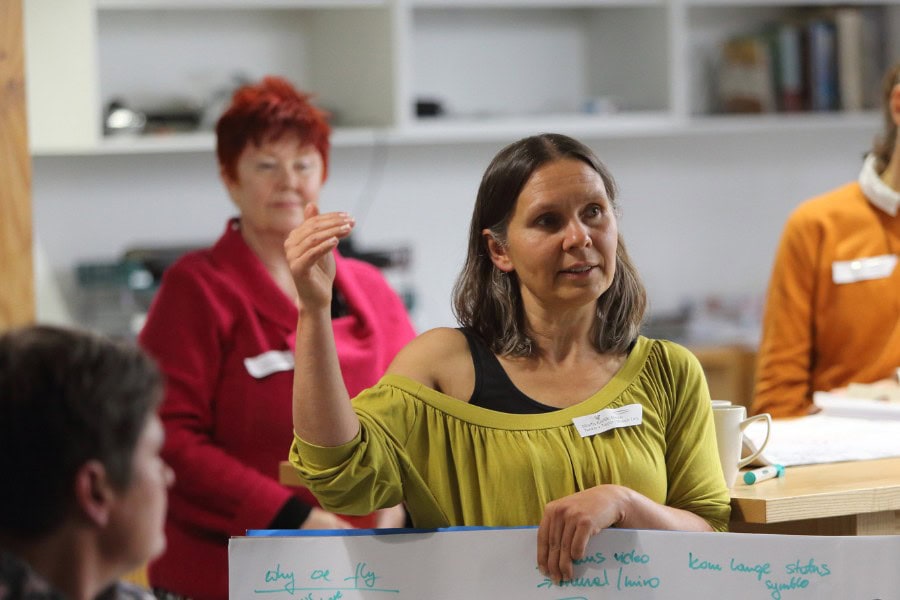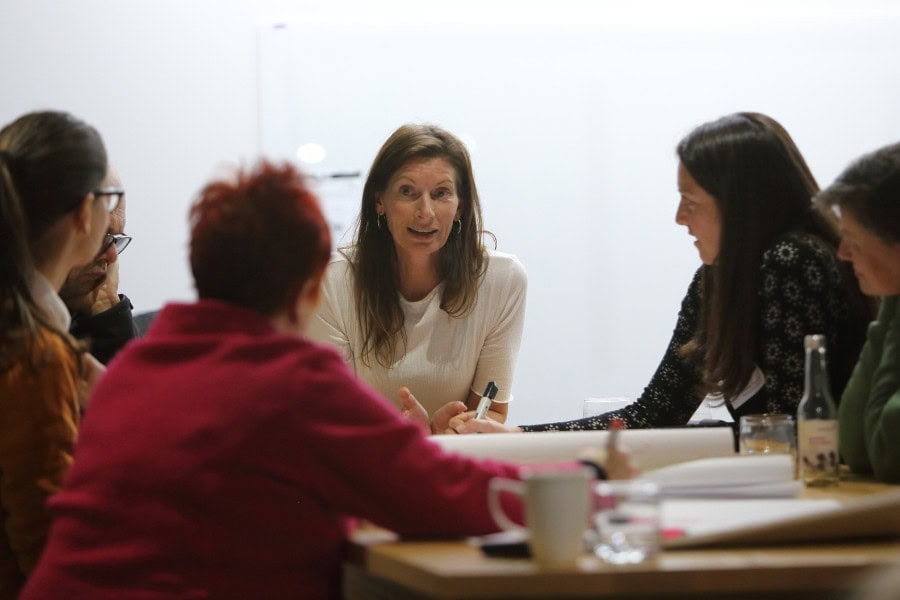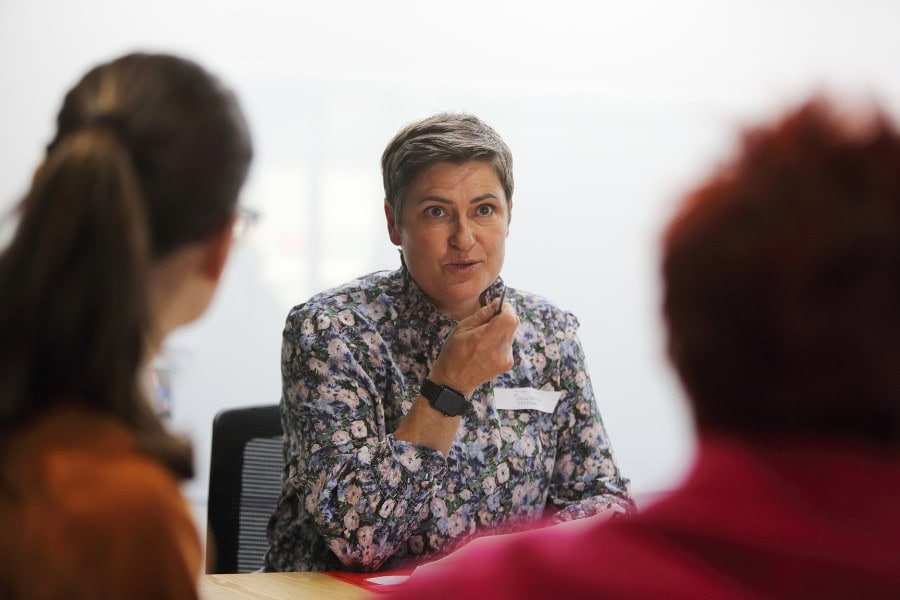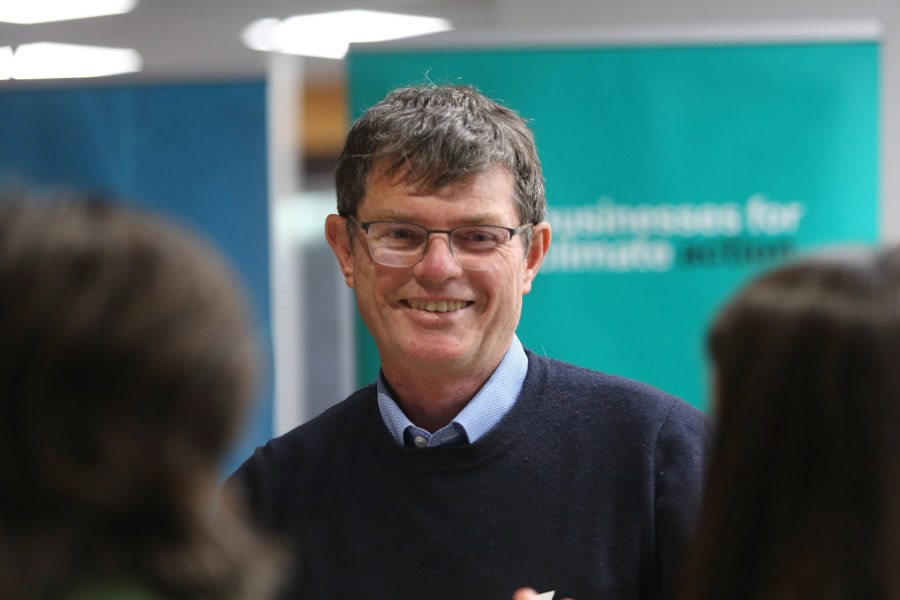Mission Zero hosts numerous climate change workshops throughout the year. In May 2024, our first Behaviour Change session featured several round-table discussions led by professionals experienced in sustainable transport, energy, waste, and procurement.
Marta Karlik-Neale, Sustainability & Resilience Principal for Tonkin + Taylor, spearheaded the discussion on Business Travel. Read on to hear some some of the challenges and potential solutions considered for this topic.

Marta began each round-table discussion by sharing insights from graphs and data collected as part of Tonkin + Taylor’s (T+T) emissions inventory.
Business travel is T+T’s largest source of emissions, contributing 44 per cent of the company’s total carbon.
Of this segment, 86 per cent stemmed from corporate air travel, with First Class travel producing significantly more CO2e emissions compared to other classes (four times more than Economy), including Business Class.
High emissions had also resulted from the use of large, petrol-fueled rental cars and taxis.
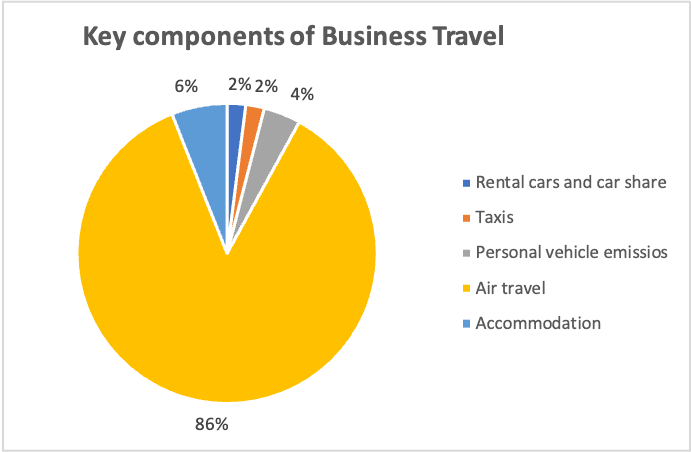
Marta discussed the value of business travel to the company before exploring behaviour change strategies with the group. Key points included:
- The perception that face-to-face interactions are more effective for building relationships and networking with customers.
- The need for longer-distance travel due to T+T’s global market expansion.
- The social identity associated with First Class air travel.
- A resistance to change.
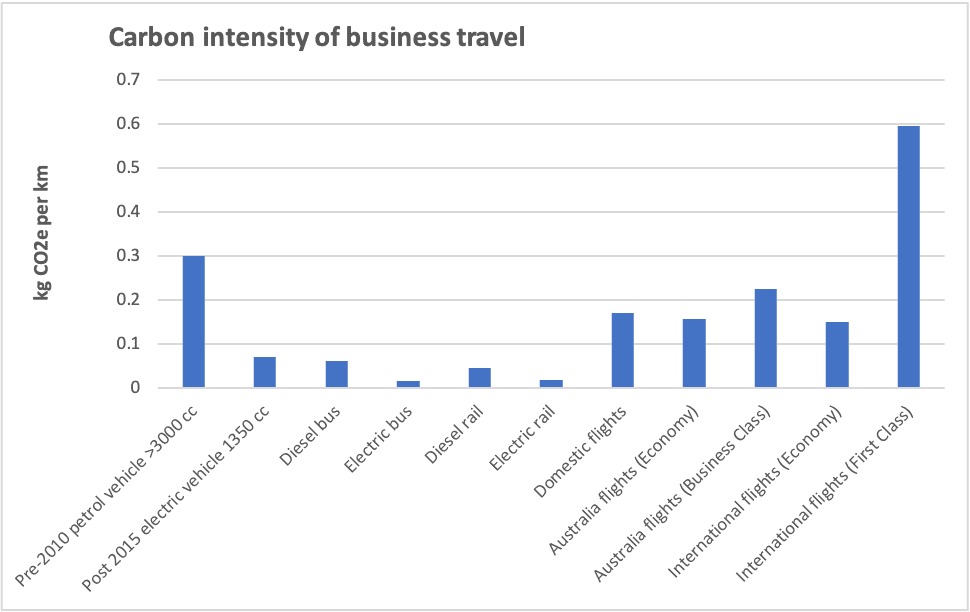
She also highlighted the benefits of in-person interactions on staff well-being, noting that the reduced business travel during COVID years (2020 and 2021) likely contributed to feelings of disconnection.
Attendees brainstormed strategies to address these challenges, bringing their own ideas and experiences to the table, such as:
- Incentivising: Rewarding the switch to electric transport, awarding other change ideas, introducing fun alternatives (e.g., social events, happy hours).
- Nudging: Directing staff to carbon-counting search engines for travel methods, highlighting inefficiencies and inconveniences caused by travel, encouraging stand-up/walking meetings, and promoting multi-purpose business trips.
- Challenging: Implementing an annual carbon budget for employees, targeting reductions in travel costs.
- Communicating: Clarifying travel policies, encouraging video conferencing, introducing new technology for collaborations (Miro/Mural), scheduling regular client meetings to mitigate the impact of online-only interactions, and highlighting the CO2e impact of travel.
- Locating: Prioritising local contracts, reviewing and broadening work locations (work-from-home, using local business hubs), and inviting speakers instead of sending staff to conferences.
Transport is one of Aotearoa New Zealand’s largest sources of greenhouse gas (GHG) emissions, accounting for approximately 17% of gross domestic emissions and 39% of total domestic CO2 emissions.1
Learn more about the Government’s plan to reduce GHGs from transport – including aviation (see Action 10.3.3) – in Aotearoa New Zealand’s first emissions reduction plan (published May 2022).
- Figures are based on an estimate of 2019 transport emissions from New Zealand’s Greenhouse Gas Inventory 1990–2020. ↩︎
